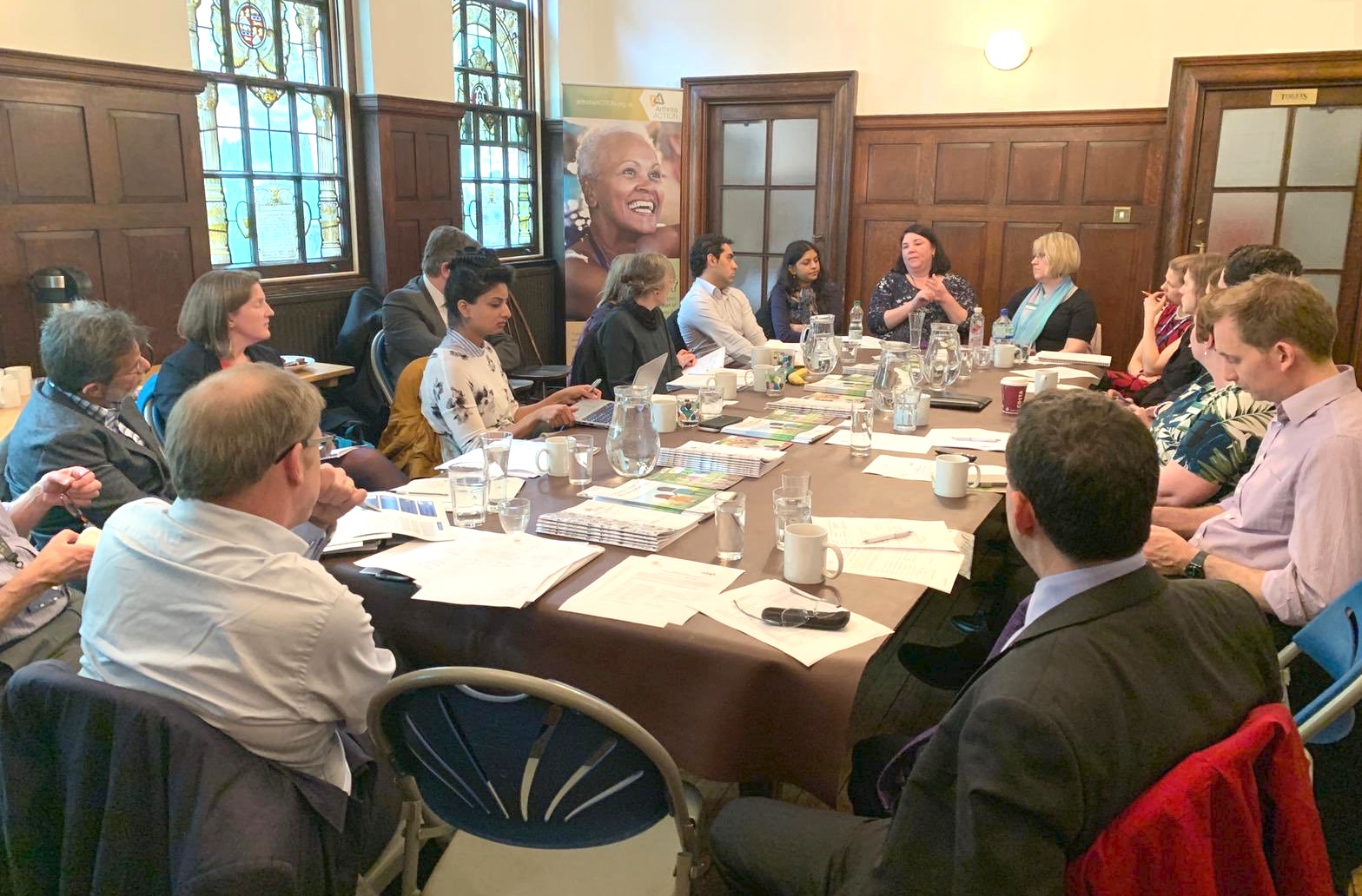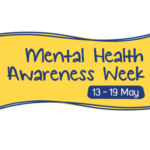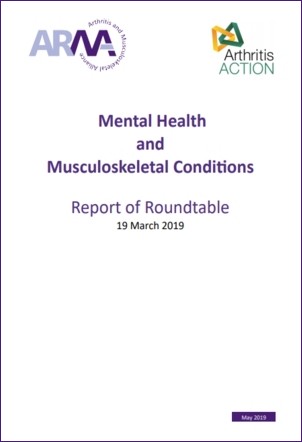
In April 2019, ARMA, supported by UK charity Arthritis Action, released a new report looking at the impact of mental health on people with arthritis and other musculoskeletal (MSK) conditions. The report followed a roundtable event, organised by ARMA in March, which, for the first time, brought together leaders from Mind, NHS England, Arthritis Action, and other health charities to look at ways to improve access to effective psychological support for MSK patients.
Sue Brown, CEO of ARMA, says:
“It’s not surprising that mental health is so common amongst people with conditions which cause long term pain. What is surprising is how little support with their psychological well-being is offered to people who live with daily pain. This roundtable report should be an important first step in changing this. There are interventions that have been shown to work, but they aren’t available in most areas. ARMA believes that everyone who could benefit from them should be offered them.”
MSK conditions comprise over 100 different diseases and syndromes that interfere with a person’s ability to carry out their normal daily activities. MSK conditions are the biggest cause of disability in the country, with around 17.8 million people in the UK affected by them.[i]
Around one in five people with osteoarthritis, the most common form of arthritis, report depression and anxiety.[ii] In terms of receiving mental health support, one in five patients with rheumatoid arthritis report being asked about emotional issues by a rheumatology professional, even though almost half of the population would like the opportunity.[iii]
Key themes highlighted in the report are:
- Treating emotional and mental health conditions should be a fundamental part of managing arthritis from point of diagnosis. A recent survey found that two in five people with arthritis had never been asked by a healthcare professional about their emotional wellbeing [iv].
- Mental health support is needed at every diagnosis/transition point in a person’s journey.
- People with MSK conditions often feel that they are the only ones experiencing them. Contact with patient support organisations, either through helplines or support groups, can help people understand their experiences are common.
- Keeping people in work is as important as getting them into work.
- Training/supporting employers in managing staff with long-term conditions is key.
Recommendations:
- Integrated physical and mental health support should be available from basic educational materials to integration in pain clinics and rheumatology.
- Every healthcare professional with an MSK patient should ask about their emotional
/psychological wellbeing at every appointment. - Healthcare professionals should ensure that patients are aware of patient support groups and organisations available, both nationally and locally.
- MSK professionals should receive training and CPD to help them better understand and assess mental health. Training should include risk assessment and knowledge of referral pathways.
Leigh Walmsley, arthritis patient and London 2012 Paralympic Archer, says:
“I developed osteoarthritis after a serious cycling accident aged 11, but noticed the first signs of inflammatory arthritis in my 20s. The impact arthritis had on my life was very significant. I couldn’t run in PE with my classmates, walk too far, stand for too long and as my inflammatory arthritis began to rear its head; there were times I almost couldn’t walk home after work. The fatigue of chronic pain is debilitating and causes depression.
“Arthritis Action appeared in my life when I was at a low point. It was a huge comfort to know there were other people like me, that have the same ideals as me and most importantly, they allow me to help other people with arthritis. I was so inspired, I decided to start a support group for the Charity in the North West. Groups are a great way of bringing people together, helping them feel less isolated or alone, which is really beneficial for our mental health.”
Read the Mental Health Roundtable Report.
[i] Versus Arthritis: State of Musculoskeletal Health Report 2018
[ii] Versus Arthritis: State of Musculoskeletal Health Report 2018
[iii] National Rheumatoid Arthritis Society (NRAS): Emotional Health & Well-being Matters Survey 2018
[iv] National Rheumatoid Arthritis Society (NRAS): Emotional Health & Well-being Matters Survey 2018


